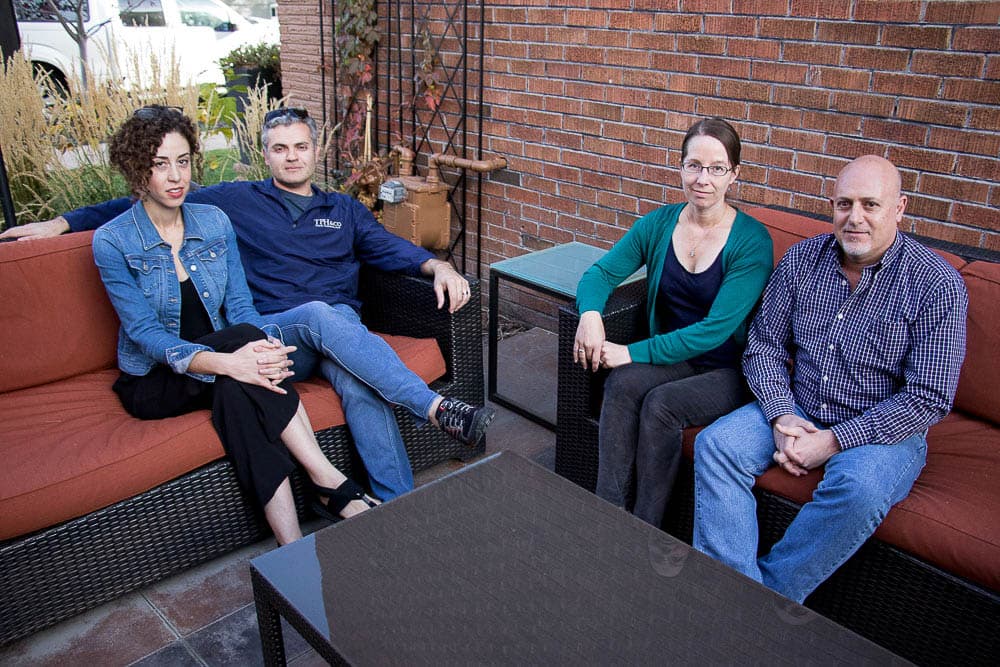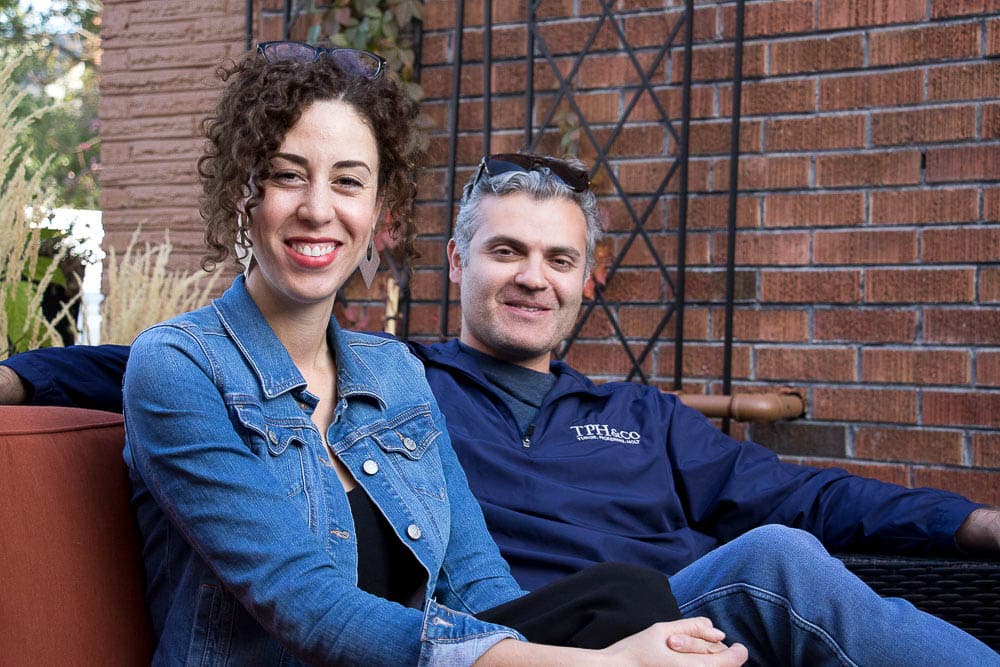STARTUP OF THE WEEK: TOKKEN

In this series, we visit Denver-metro, Boulder and Rocky Mountain region startups. Contact [email protected] to be considered.
Tokken is a mobile banking app designed to legitimize the way Coloradans pay for weed. Using a custom-built internal banking system based on “tokens,” instead of cash, the company hopes to grow the technology and, eventually, disrupt the global banking system.
For users, Tokken acts as a digital wallet, enabling easy purchasing with on-file cards. But this wallet is different from other popular payment systems, like Venmo or Paypal.
Tokken's technology converts hard currency to digital tokens, which are used as an accounting tool, linked to U.S. currency.
Dispensaries can choose to leave the money in token form, convert tokens to cash or use them to make other payments.
All transaction records are "geofenced," meaning Tokken can prove customers are making purchases where they say they are, and are recorded in a blockchain database. The blockchain keeps encrypted records, links them to past purchases, is safe from tampering and needs no administrator.
For an industry operating under intense scrutiny, both from the federal and local government, this vice-like security is vital. And, now, it's affordable too.
For the customer, there is no fee for using Tokken. As it stands, fees for marijuana transactions are transferred to the customer in a variety of ways. Before Ajoya dispensary in Louisville adopted Tokken, they charged a $2.41 charge to start, plus a 2 percent fee per transaction.
For dispensaries and other marijuana businesses, there is generally a 3.5 percent transactional fee -- which is standard for credit card processing. Tokken said they will work with retailers on a case-by-case basis to asses final fees. And in the cannabis industry, fees average about 8 percent per transaction.
"We essentially bring them into a legitimate world of banking and processing by bringing them into that fee structure," founder and CEO Larime Zarrad said. "It's not just a business strategy, it is also a strategy that allows us to de-stigmatize the space."

Even in Colorado, even in 2016, many cannabis businesses still struggle to find banks that will work with them. Large banks and credit card companies fear the risks associated with marijuana businesses. And federal law prohibits banks and credit unions from handling marijuana money, according to Pew.
This leaves dispensaries with limited options: handle large sums of cash, jump between banks and accounts or come up with creative cash handling solutions that are sometimes illegal and, oftentimes, more costly than the transaction fee.
But Tokken feels passionately about legitimizing the cannabis--and it isn't because the team loves to smoke it.
In fact, they describe themselves as nerds and only about half actually smoke the reefer.
"This team of people, despite being so diverse, we are all pretty nerdy," said Jenaya McGowen, Tokken's Director of Government Affairs. "It's a fun group of very creative minds."

Tokken is diverse by any standard, but especially for the cannabis industry.
For starters, the team has several veterans. C.P. Smith, Tokken's Chief Operations Officer, is of Puerto Rican descent and served as a U.S. Naval officer. Chief Technology Officer Adam Healey and Joshua Holley, Vice President of Finance and Accounting, served -- and met -- in the U.S. Marine corps.
McGowen, a Greeley-native, met Smith and Zarrad in graduate school at the University of Texas. Prior to joining Tokken, she worked for the Colorado Department of Higher Education. McGowen, Smith and Zarrad were the first in their families to achieve collegiate education in the United States.
Tokken's Chief Compliance Officer Rita Crague is a Grand Junction native who worked for the CIA prior to joining Tokken. And Ron Goldstein, Vice President of Business Development, worked for zthe Cannabist--for him, cannabis de-stigmatization is a passion.
For CEO and founder Zarrad, the disenfranchisement of the unbanked hits very close to home.
Zarrad is U.S. Marine Corps veteran, who later worked for the U.S. Treasury. But his origins are humble.
After the collapse of the Soviet Union, Zarrad lived as a refugee in Moscow. His Armenian family was forced to flee ethnic cleansing in their homeland, Azerbaijan. And later, in the U.S., he lost his home, again, to Hurricane Katrina.
Together the team is African-American, Puerto Rican, Mexican, Lebanese, Israeli and Azeri. Together, their experiences fuel their greater vision: to use the technology they've developed to de-stigmatize under- and un-banked groups. That starts with the cannabis industry.
The Tokken team identifies with the stigma that leaves marijuana businesses outside of the law. They view it as a form of discrimination, not only against the cannabis industry but against disenfranchised groups.
"[They are] forced to operate in a cash-only environment despite that they desperately want to be legitimized, and desperately want to pay taxes and participate society at large," Zarrad said."I think banking can be a powerful policy tool to marginalize and ostracize people."
Tokken is using the cannabis industry as a laboratory to test their new technology, and eventually expand it to other sectors.
"Its unique combination of economic growth and restrictions test our product really well," Zarrad said. "If we could test it here in cannabis we could take it and use the same model to offer services to the unbanked, say the undocumented workers, migrant workers, individuals in emerging economies."
Zarrad believes Tokken could be the key to extending banking to unbanked individuals, like refugees and migrants, via pre-existing mobile technology.
Lamine, a self-described "futurist," envisions a world with a decentralized banking system, with technology as a neutral and overriding power structure.
"This is the future of banking--banks will no longer be centralized behemoths with branches," Lamine said. "It's going to become a bunch of smaller institutions and a decentralized platform that ties them all together."
He likened it to Airbnb or Uber, where people can purchase rides or rent apartments directly from other people. In his vision, this bottom-up economy will preclude marginalization.
"If we as a society shifted our focus to a top down policy decision making to a more grassroots organic influence, we as people can influence policy and a much more effective way," he said. "And what could be a more effective than an economic push toward equality?"
Tokken launched Sunday, Oct. 25 at Ajoya dispensary. As of Monday, the app had processed about 120 transactions totaling to about $5,000.
By the year's end, they hope to reach 50 dispensaries and around 45,000 users, and eventually they want to branch out into the California and Puerto Rico markets.
Founder: Lamine Zarrad
Employees: 9
Industry: Banking, cannatech
Founded: March 2016
Launched: Oct. 25, 2016
Funding: $750,000 in series A funding from Angel Investors
Offices: Denver
Multimedia business & healthcare reporter Chloe Aiello can be reached via email at [email protected] or twitter.com/chlobo_ilo.
Subscribe to Denverite’s newsletter here.












